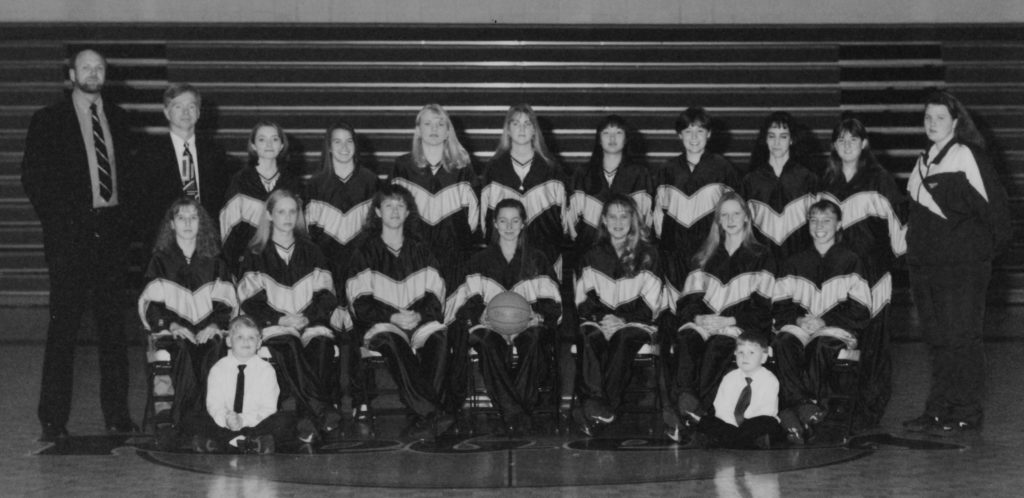 Johnny Farmer coached the Fannin County High School girls team from 1981-2007. During his time at the school, the Lady Rebels won a total of 509 games, won two state championships and finished as state runners-up on two occasions. The 1996-97 Fannin County High School girls team advanced to the Class AA championship game before losing to Thomasville. In recognition of their dramatic journey to the final game, the 1996-97 Fannin County Lady Rebels team has been chosen as the team selection in the Fannin County Sports Hall of Fame induction class of 2018.
Johnny Farmer coached the Fannin County High School girls team from 1981-2007. During his time at the school, the Lady Rebels won a total of 509 games, won two state championships and finished as state runners-up on two occasions. The 1996-97 Fannin County High School girls team advanced to the Class AA championship game before losing to Thomasville. In recognition of their dramatic journey to the final game, the 1996-97 Fannin County Lady Rebels team has been chosen as the team selection in the Fannin County Sports Hall of Fame induction class of 2018.
As the Fannin girls gathered for practice in the fall of 1996, the outlook for the coming season loomed as a big question mark. The previous year’s team had posted an all-time team best record of 28-1 and had advanced to the state tournament final 4 before tasting defeat for the first and only time. Five seniors from that team graduated including four starting players. The lone returnee, however, was the sensational Ashley Herendon who competed as a junior for the 1996-97 team. As the season unfolded, the starting lineup for the Lady Rebels generally included three sophomores and two juniors. Only one senior, Leigh Muse, was on hand to provide leadership for the young group.
From the get-go the 1996-97 season was a roller coaster ride for the Fannin girls and their supporters. Probably based more on past accomplishments more than current prospects, the Lady Rebels were ranked # 6 in the preseason poll published by the Atlanta Journal-Constitution. The young ladies started strong winning their first 8 games including a heart-stopping 46-45 decision over the also unbeaten Pickens County team in a game played in Jasper. Ashley Herendon’s free throw with 13 seconds remaining provided the victory margin.
Another of the high points of the season occurred a few days later when the Lady Rebels defeated Stockbridge in the first round of the Taco Bell Christmas Tournament at Blue Ridge. The victory was the 300th career win for Coach Farmer. One of the low points of the season came the following night as the Lady Rebels lost their first game of the season, 46-47 to Murphy NC, a team that the Lady Rebels had defeated earlier in the season. The team rebounded and on the eve of the last regular season game on Friday, February 14, with a record of 18-3 were favored to win the regular season Region 7AA championship, needing only a victory over Forsyth Central the following evening to wrap up the crown.
Tragic news awaited the Lady Rebels and the entire student body at Fannin County High School, however, on Friday morning when word came that former Lady Rebel standout and a member of the 1995-96 team, Sabrina Gibson, had died in an automobile in Cleveland, Tennessee. After completing her eligibility at Fannin, Sabrina had continued her career at Cleveland State Community College. Suddenly basketball championships seemed insignificant as the young people of the school were forced to cope with the death of one of their own. The Lady Rebels proceeded with the final regular season game that evening in an atmosphere of grief tempered somewhat by the resiliency of youth in a time of crisis.
The Fannin girls defeated Forsyth Central and entered the Region 7AA tournament as the number one seed. They defeated White County in the semi-finals and then were blown out by Pickens County in their most lackluster performance of the year in the Region Championship game. Both the champion and runner up advanced to the State Tournament, however, so the Lady Rebels had some more hoops to play.
The real on-court drama began when the Lady Rebels squared off against East Hall in the first round game. Down by 17 points at one point in the third quarter, the Fannin girls stormed back, tied the game in regulation and won in overtime, 50-49, on a buzzer beating field goal by sophomore Stacy Parris. After the East Hall victory Stacy could have uttered the old vaudeville phrase “you ain’t seen nothing yet” because her post-season heroics were far from over. In the quarterfinal match against Dade County Stacy calmly sank a free throw with 15 seconds remaining to propel the Lady Rebels to another one-point victory, 41-40.
The trifecta of one-point victories came in the semi-final game against Hancock Central in another overtime thriller. With no time remaining on the clock, Stacy Parris again drilled a free throw to give the Fannin girls a 60-59 victory and a spot in the title game against powerful Thomasville. The magic finally ran out in that game and the Lady Rebels left Macon with a runner up trophy and an overall record of 23 victories and 5 defeats.
The 1996-97 Fannin County girls basketball team had many heroes. Junior Ashley Herendon and sophomore Stacy Parris were outstanding all season and both young ladies have been inducted into the Fannin County Sports Hall of Fame. Point guard and queen of the behind the back dribble, Roxie Reed, was a rock in guiding the team. Post players Leah Nelson, Tina Grice and Jodie Thomas controlled the ‘paint’ and backboards like guards at Ft. Knox. Leigh Muse, the only senior on the team, provided leadership and lots of help at one of the wing positions. Strong supporting help came from back-up point guards Tara Dillinger and Amanda Newton, inside or ‘post’ players Kelly Queen, Cheri Shinpaugh, Carrie Dills and Cindy Williams along with ‘wings’ Kristy Galloway and Rachael Nicholson. Assisting Johnny Farmer with the coaching duties was Eddie Payne.
After the season, Ashley Herendon became the first basketball player in Fannin County High School history to be named first team All-State when she was so honored by the Atlanta Tipoff Club. Seven of the sophomores on the team, Stacy Parris, Tina Grice, Leah Nelson, Roxie Reed, Cindy Williams, Amanda Newton and Rachael Nicholson would go on to be the heart of the 1998-99 team that won a State Championship. And, kudos should also go to Fannin High teacher and current assistant principal T.C. Dillard who was honored as the team’s Top Fan for her indefatigable support.






















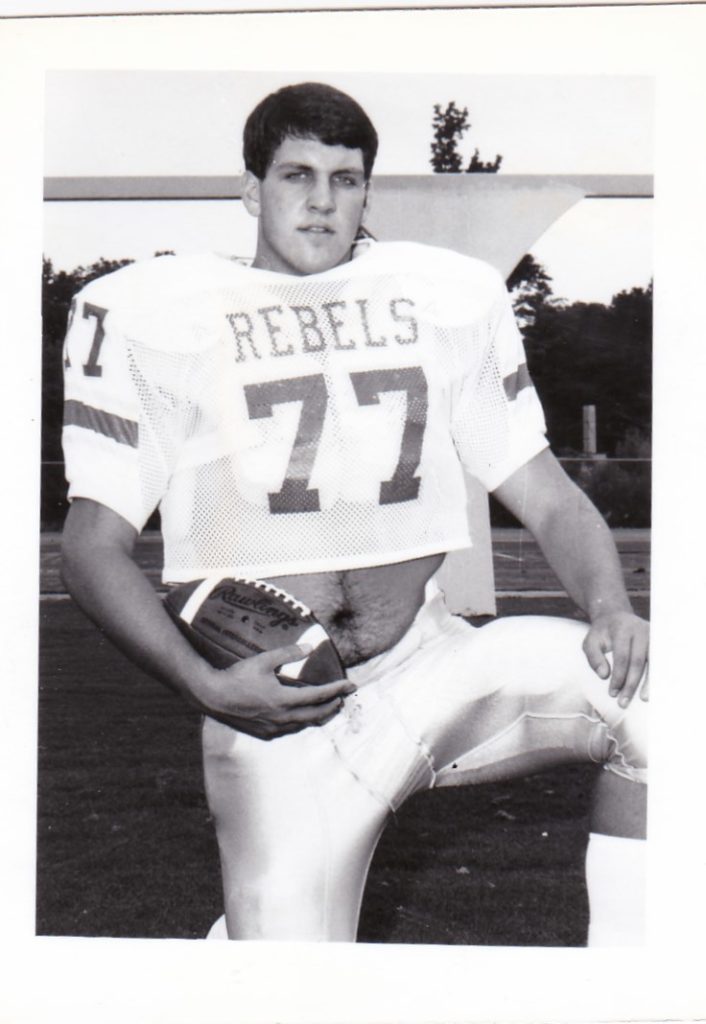 Between 1985 and 1993 Tim Jabaley played the game of football as an offensive lineman first at Fannin County High School and then at the University of Tennessee at Chattanooga. His proficiency at that craft has been recognized by the Fannin County Sports Hall of Fame voters who have elected him to the induction class of 2018. Tim also played in the defensive line at Fannin County but is best remembered for his performances on the offensive side of the line of scrimmage.
Between 1985 and 1993 Tim Jabaley played the game of football as an offensive lineman first at Fannin County High School and then at the University of Tennessee at Chattanooga. His proficiency at that craft has been recognized by the Fannin County Sports Hall of Fame voters who have elected him to the induction class of 2018. Tim also played in the defensive line at Fannin County but is best remembered for his performances on the offensive side of the line of scrimmage.




























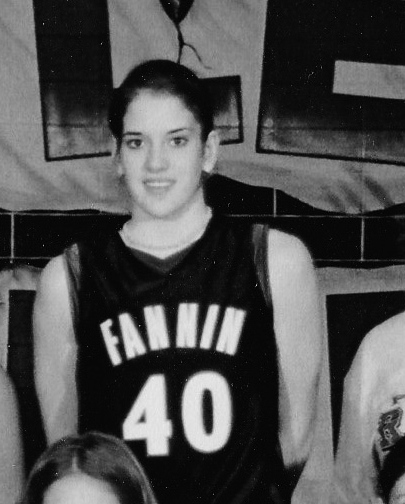 2018 Fannin County Sports Hall of Fame inductee Stephanie Scearce began her competitive basketball career as a second grader and did not hang up her sneakers until a knee injury permanently sidelined her just before her senior season at Kennesaw State University. It was her third serious knee injury in a career full of a lot of euphoric highs and a few devastating lows.
2018 Fannin County Sports Hall of Fame inductee Stephanie Scearce began her competitive basketball career as a second grader and did not hang up her sneakers until a knee injury permanently sidelined her just before her senior season at Kennesaw State University. It was her third serious knee injury in a career full of a lot of euphoric highs and a few devastating lows.


















 2018 Fannin County Sports Inductee Mandy Anderson scored more than 1,000 points during her basketball career at Fannin County High School between 1999 and her graduation in the spring of 2003. She then continued her basketball career at Reinhardt University in Waleska, Georgia where she scored 1,138 points in a four year career with the Lady Eagles making her the only basketball player in the history of Fannin County to score more than 1,000 points at both the high school and college level.
2018 Fannin County Sports Inductee Mandy Anderson scored more than 1,000 points during her basketball career at Fannin County High School between 1999 and her graduation in the spring of 2003. She then continued her basketball career at Reinhardt University in Waleska, Georgia where she scored 1,138 points in a four year career with the Lady Eagles making her the only basketball player in the history of Fannin County to score more than 1,000 points at both the high school and college level.





























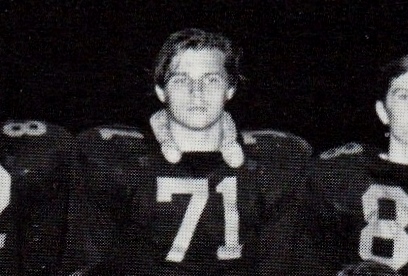 In recognition of his outstanding football career at East Fannin High School from 1968-1972, Keith Dockery has been elected to the Fannin County Sports Hall of Fame.
In recognition of his outstanding football career at East Fannin High School from 1968-1972, Keith Dockery has been elected to the Fannin County Sports Hall of Fame.



























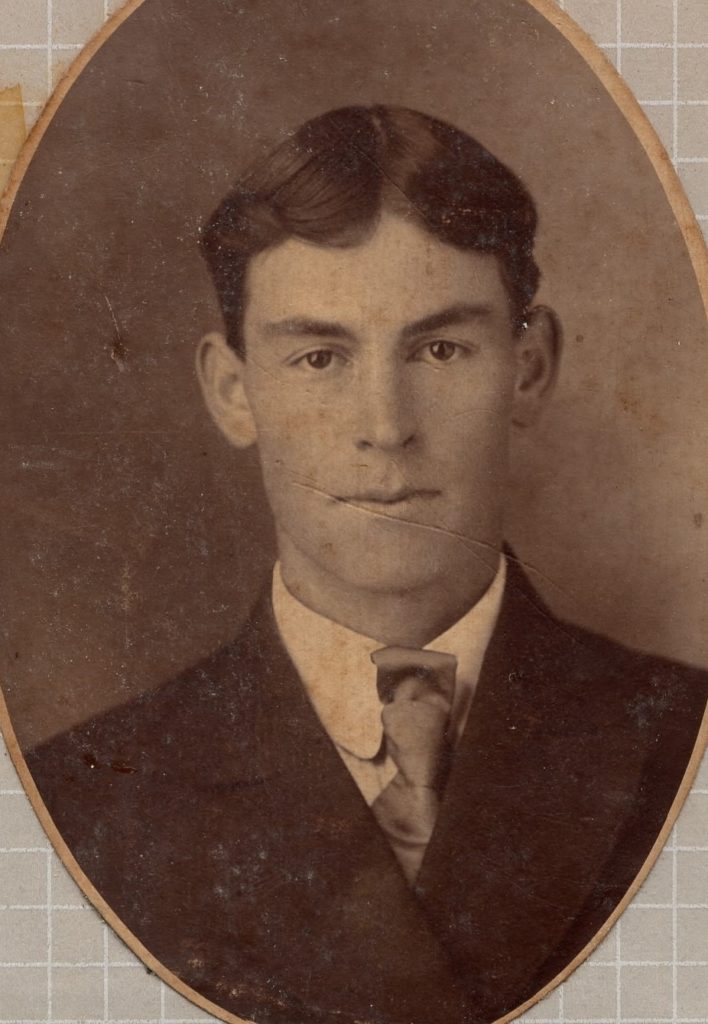 r women like John Mercer Carter only come along once or twice in a generation. Mr. Carter was a man of extraordinary character, vision and energy who devoted much of his 102 years on earth to education, athletics and public service in and around Fannin County. In recognition of his many accomplishments and contributions to athletics, both as a participant and as a coach and administrator, John Carter has been elected to the Fannin County Sports Hall of Fame Class of 2018.John was born in the community of Cobbs, North Carolina, close to the Georgia border in September, 1886. His father J.M. Carter was an educator and evangelist of some note who moved the family to Mineral Bluff and then to a farm near Morganton, Georgia before John reached the age of 10. J.M. Carter was one of the principals in the establishment of the North Georgia Baptist College in Morganton, a school that provided a quality education to students between grade one through two years of college. It was here that John Carter received his rudimentary education before moving on to the University of Georgia to complete the requirements to teach in schools at that time. He began his teaching career at a one room school in Hemp, Georgia in 1908.John Carter discovered the game of baseball around the turn of the century. In his book ‘Trails of the Past’, Carter tells of visits to his grandparents in Bellvue, North Carolina after his family had moved to Morganton. Another young man, Ty Cobb, who was two months younger than John, also visited his grandparents in the same community around that same time. The two boys played together as youngsters and, most likely faced each other in baseball games during the early years of the century. John had begun his career with the team from North Georgia Baptist College and Ty was often drafted to play with the semi-pro team in nearby Murphy, North Carolina while visiting in Bellevue. Cobb began his professional career when he signed with the Augusta, Georgia team in April, 1904, just as John Carter was completing his high school education.
r women like John Mercer Carter only come along once or twice in a generation. Mr. Carter was a man of extraordinary character, vision and energy who devoted much of his 102 years on earth to education, athletics and public service in and around Fannin County. In recognition of his many accomplishments and contributions to athletics, both as a participant and as a coach and administrator, John Carter has been elected to the Fannin County Sports Hall of Fame Class of 2018.John was born in the community of Cobbs, North Carolina, close to the Georgia border in September, 1886. His father J.M. Carter was an educator and evangelist of some note who moved the family to Mineral Bluff and then to a farm near Morganton, Georgia before John reached the age of 10. J.M. Carter was one of the principals in the establishment of the North Georgia Baptist College in Morganton, a school that provided a quality education to students between grade one through two years of college. It was here that John Carter received his rudimentary education before moving on to the University of Georgia to complete the requirements to teach in schools at that time. He began his teaching career at a one room school in Hemp, Georgia in 1908.John Carter discovered the game of baseball around the turn of the century. In his book ‘Trails of the Past’, Carter tells of visits to his grandparents in Bellvue, North Carolina after his family had moved to Morganton. Another young man, Ty Cobb, who was two months younger than John, also visited his grandparents in the same community around that same time. The two boys played together as youngsters and, most likely faced each other in baseball games during the early years of the century. John had begun his career with the team from North Georgia Baptist College and Ty was often drafted to play with the semi-pro team in nearby Murphy, North Carolina while visiting in Bellevue. Cobb began his professional career when he signed with the Augusta, Georgia team in April, 1904, just as John Carter was completing his high school education.





















